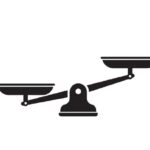High blood pressure, also known as hypertension, is a common health condition that can increase the risk of heart disease, stroke, and other serious health problems. While medications can help manage blood pressure, there are numerous natural approaches that can effectively lower blood pressure. In this comprehensive guide, we will explore evidence-based strategies and lifestyle changes to help you naturally maintain healthy blood pressure levels.
Understanding Hypertension
Before we delve into the natural ways to lower blood pressure, let’s have a brief overview of hypertension and why it’s essential to manage it.
Hypertension is a medical condition characterized by elevated blood pressure levels. It occurs when the force of blood against the walls of the arteries is consistently too high. Hypertension is often referred to as the “silent killer” because it can damage the body’s organs and blood vessels over time, even without noticeable symptoms.
Lifestyle Strategies for Natural Blood Pressure Control
1. Adopt a Heart-Healthy Diet
Your dietary choices play a significant role in blood pressure regulation. Embrace the following dietary recommendations:
Foods to Include:
- Fruits and vegetables
- Whole grains
- Lean proteins (chicken, fish, beans)
- Nuts and seeds
- Low-fat dairy products
Foods to Limit:
- Sodium (salt)
- Processed and fried foods
- Sugary beverages
- Red meat
- Excess alcohol
2. Reduce Sodium Intake
Excessive sodium consumption is a key contributor to high blood pressure. Aim to consume less than 2,300 milligrams of sodium per day (or 1,500 milligrams if you have high blood pressure or are at risk). Be vigilant about reading food labels to identify hidden sources of sodium.
3. Maintain a Healthy Weight
Carrying excess body weight increases the risk of hypertension. Achieving and maintaining a healthy weight through a combination of a balanced diet and regular physical activity can help lower blood pressure.
4. Engage in Regular Physical Activity
Regular exercise is a powerful tool for managing blood pressure. Aim for at least 150 minutes of moderate-intensity aerobic exercise or 75 minutes of vigorous-intensity exercise per week. Activities like brisk walking, swimming, cycling, and dancing are excellent choices.
5. Limit Alcohol Consumption
Excessive alcohol intake can raise blood pressure. If you choose to drink, do so in moderation. For men, this means up to two drinks per day, and for women, one drink per day.

Natural Supplements for Blood Pressure Control
1. Potassium-Rich Foods
Potassium is an essential mineral that can help regulate blood pressure. Foods rich in potassium include bananas, oranges, spinach, and potatoes. Incorporating these foods into your diet can contribute to lower blood pressure.
2. Magnesium-Rich Foods
Magnesium is another mineral that plays a role in blood pressure regulation. Foods high in magnesium include almonds, cashews, spinach, and avocados. Adding magnesium-rich foods to your diet can support natural blood pressure control.
Real-Life Success Stories
Let’s take a look at real-life examples of individuals who successfully lowered their blood pressure naturally:
Case 1: Lisa’s Journey
Lisa, a 45-year-old woman with high blood pressure, decided to make significant lifestyle changes. She switched to a heart-healthy diet, reduced her sodium intake, and started exercising regularly. Over time, Lisa’s blood pressure readings improved, and she was able to reduce her medication dosage. Lisa’s story illustrates the power of natural approaches to blood pressure management.
Case 2: John’s Transformation
John, a 50-year-old man, faced a hypertension diagnosis that motivated him to take action. He embraced a plant-based diet, practiced stress-reduction techniques like meditation, and incorporated daily physical activity into his routine. John’s commitment to natural strategies led to a noticeable decrease in his blood pressure, and he successfully maintained healthy levels without the need for medication.
Additional Natural Approaches for Blood Pressure Control
1. Stress Management
Chronic stress can contribute to high blood pressure. Implementing stress-reduction techniques such as meditation, deep breathing exercises, or yoga can help manage stress and naturally lower blood pressure.
2. Monitoring Blood Pressure Regularly
Regularly checking your blood pressure at home with a home blood pressure monitor allows you to track your progress and detect any changes. Follow proper procedures to ensure accurate measurements.
Conclusion
Lowering and maintaining healthy blood pressure levels can be achieved through natural approaches and lifestyle changes. Whether through dietary modifications, regular exercise, stress management, or natural supplements, you have the tools to take control of your blood pressure and reduce the risk of heart disease, stroke, and other health complications. Remember that small, consistent changes in your daily routine can lead to significant improvements in blood pressure over time. Consult with a healthcare provider to create a personalized plan that aligns with your unique needs and circumstances. With dedication and the right strategies, you can effectively manage hypertension and enjoy better cardiovascular health naturally.
















